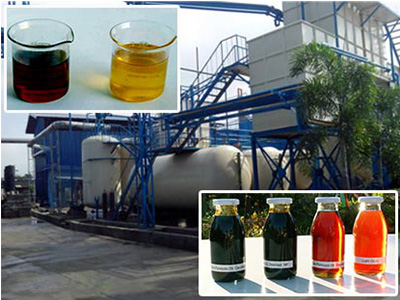Biodiesel was first proposed by German engineer Dr. Rudolf Diessel. At the World Exhibition in Paris in 1900, he showed his engine with peanut oil as fuel. Dr. Rudolf Diesel actually invented the diesel engine to run on a myriad of fuels including coal dust suspended in water, heavy mineral oil, and vegetable oil. His initial engine experiments were catastrophic failures.

In 1911, he stated “The diessel engine can be fed with vegetable oils and would help considerably in the development of agriculture of the countries which use it.” In 1912, Diesel said, “The use of vegetable oils for engine fuels may seem insignificant today. But such oils may become as important as petroleum and the coal tar products of the present time.” No doubt, this statement has come to stay. Since Dr. Diessel’s untimely death in 1913, his engine has been modified to run on the polluting petroleum fuel we now know as “diesel.” Nevertheless, his ideas on agriculture and his invention provided the foundation for a society fulled with clean, renewable, locally grown fuel. Today throughout the world, countries are returning to using this form of fuel due to its renewable source and reduction in pollution.

In I1983, American scientists first used methyl rapeseed oil for engines for 1000 hours. Biodiesel is defined as a renewable fatty acid monoester.
In 1984, scientists in the United States and Germany studied the use of fatty acid methyl ester or ethyl ester instead of diesel fuel, that is, the use of animal or plant fatty acid monoester including fatty acid methyl ester, fatty acid ethyl ester and fatty acid propyl ester instead of diesel fuel combustion. Biodiesel has the following advantages compared with conventional diesel oil:

- Good ignition performance
The cetane number of diessel oil is higher than 45 (petrochemical diessel is 45), and its explosion resistance is better than petrochemical diessel oil;
- More fully burned
The oxygen content of biodiessel is higher than that of petrochemical diesel, up to 11%. The oxygen content needed in combustion process is less than that of petrochemical diesel, and the combustion and ignition performance of biodiessel is better than that of petrochemical diesel.
- Wide applicability
In addition to providing alternative fuels for buses, trucks and other diesel engines, it can also be used as alternative fuels for non-road diesel engines such as ocean transportation, water power equipment, geological and mining equipment, fuel power plants, etc.
- Protective power equipment
he kinematic viscosity of biodiessel is slightly higher than that of diessel. Without affecting fuel atomization, it is easier to form a layer of oil film on the inner wall of cylinder, thus improving lubricity of moving parts and reducing wear and tear of parts.
- Good generality
No need to change the diessel engine, can be directly added to use. Without additional refueling equipment, storage and transportation equipment and personnel special technical training (usually other alternative fuels may need to modify the engine to use)
- Safe and reliable
The flash point of biodiessel is higher than that of petro diessel, and is conducive to safe storage, transportation and use.
- Good Climate Adaptability
Because of no paraffin wax, low temperature fluidity is good, It’s suitable for a wide range of areas;
- Muti-functional
In short, biodiessel has many advantages: it reduces exhaust emissions, is not combustible, biodegradable, and can be used in traditional diesel engines without improvement.
With the rise of synthetic biology in the 21st century, synthetic bio-technologies based on system biology, such as gene recombination technology, transgenic technology, computer-aided design, gene synthesis and secondary metabolic engineering, have been used to biorefine oil-rich algae cells to increase oil content, and so on. Venter has received hundreds of millions of dollars in investment, and once it is successfully industrialized it will bring about a revolution in the oil and automotive industry.